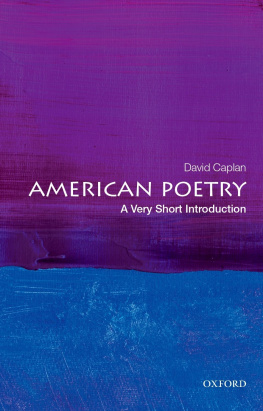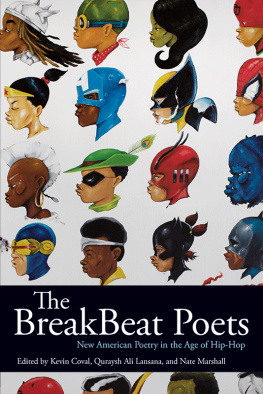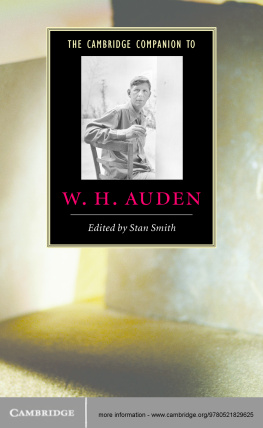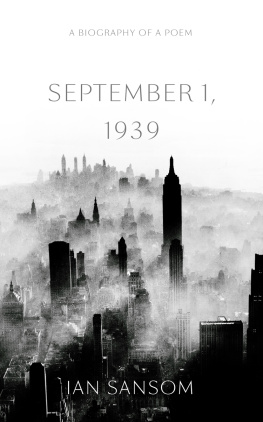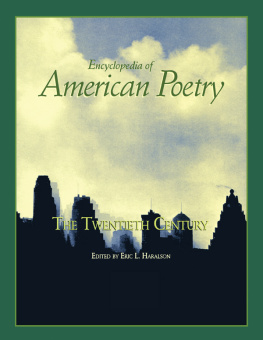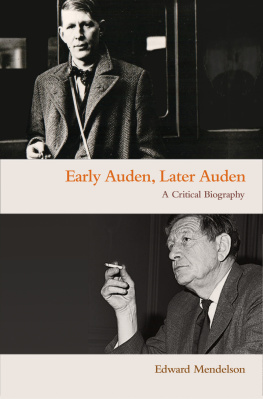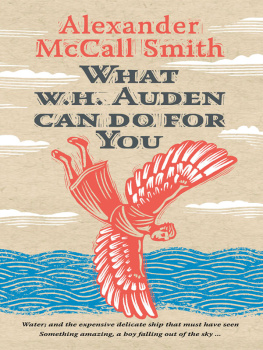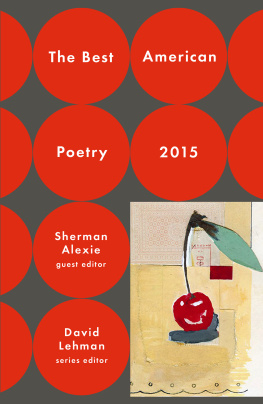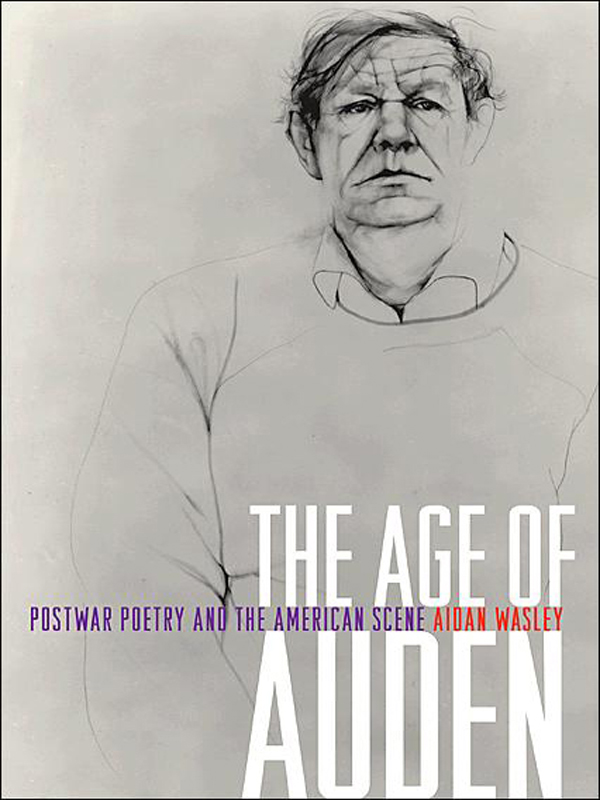Printed on acid-free paper.
ABBREVIATIONS
ACW Adrienne Rich, A Change of World (New Haven, CT: Yale University Press 1951).
ADW Adrienne Rich, An Atlas of a Difffcult World: Poems 1988-1991 (New York: W. W. Norton, 1991).
AWK John Ashbery, As We Know (New York: Penguin, 1979).
BBP Adrienne Rich, Blood, Bread, and Poetry: Selected Prose (New York: W. W. Norton, 1986).
CLS James Merrill, The Changing Light at Sandover (New York: Knopf, 1992).
CN James Merrill, Collected Novels and Plays (New York: Knopf, 2002).
[Auden] CP W. H. Auden, Collected Poems (New York: vintage, 1991).
[Merrill] CP James Merrill, Collected Poems (New York: Alfred A. Knopf, 2002)
CPM James Merrill, Collected Prose (New York: Knopf, 2004).
DCL Adrienne Rich, Dream of a Common Language: Poems 19741977 (New York: W. W. Norton, 1993).
DF Adrienne Rich, Dark Fields of the Republic (New York: W. W. Norton, 1995).
DM W. H. Auden, Double Man (New York: Random House, 1941).
DH W. H. Auden, The Dyer's Hand (New York: Vintage, 1989).
EA W. H. Auden, The English Auden: Poems, Essays and Dramatic Writings 19271939, Edward Mendelson, ed. (London: Faber and Faber, 1986).
FD Adrienne rich, The Fact of a Doorfame: Poems Selected and New 19501984 (New York: W. W. Norton, 1984).
HL John Ashbery, Hotel Lautramont (New York: Knopf, 1992).
Libretti W. H. Auden, The Complete Works of W. H. Auden: Libretti 19391973, Edward Mendelson, ed. (Princeton, NJ: Princeton University Press: 1993).
LSS Adrienne Rich, On Lies, Secrets, and Silence: Selected Prose 19661978 (New York: W. W. Norton, 1979).
MS Adrienne Rich, Midnight Salvage (New York: W. W. Norton, 1999).
Prose W. H. Auden, The Complete Works of Auden: Prose Volume II 19391948, Edward Mendelson, ed. (Princeton, NJ: Princeton University Press, 2002).
RS John Ashbery, Reported Sightings: Art Chronicles 19571987 (Cambridge, MA: Harvard University Press, 1989).
S Adrienne Rich, Sources (Woodside, CA: Heyeck Press, 1983).
[Ashbery] SP John Ashbery, Selected Poems (New York: Viking, 1985).
[Auden] SP W. H. Auden, Selected Poems (New York: Vintage, 1979).
ST John Ashbery, Some Trees (New Haven, CT: Yale University Press, 1956).
TP John Ashbery, Three Poems (New York: Ecco, 1989).
TPlays John Ashbery, Three Plays (Manchester, UK: Carcanet, 1988).
VN John Ashbery, The Vermont Notebook (Los Angeles: Black Sparrow Press, 1975).
WFT Adrienne Rich, What Is Found There (New York: W. W. Norton, 1993).
PREFACE
When W. H. Auden died in 1973, Elizabeth Bishop offered this tribute in a special memorial issue of The Harvard Advocate:
When I was in college, and all through the thirties and forties, I and all my friends who were interested in poetry, read him constantly. We hurried to see his latest poem or book, and either wrote as much like him as possible, or tried hard not to. His then leftist politics, his ominous landscape, his intimations of betrayed loves, war on its way, disasters and death, matched exactly the mood of our late-depression and post-depression youth. We admired his apparent toughness, his sexual courageactually more honest than Ginsberg's, say, is now, while still giving expression to technically dazzling poetry. Even the most hermetic early poems gave us the feeling that here was someone who knewabout psychology, geology, birds, love, the evils of capitalismwhat have you? They colored our air and made us feel tough, ready, and in the know, too.
As Bishop recalls, for American poets of her generation, including Randall Jarrell and Robert Lowell, Auden's poetry exerted a glamorous and influential appeal. His honesty, his boldness, his engagement with science and politics, and his facility with form all seemed to suggest for these poets a promising path out of the Waste Land, and a number of themparticularly Jarrellearly on began to import characteristically Audenesque diction, imagery, and attitudes into their own work. But for these poets it was the English Audenthe Auden of the 1930sthat mattered, and by the time he arrived in New York in 1939, their careers were already underway, their poetic identities formed, and Auden's importance to their writing was on the wane. Indeed, by the early 1940s, Jarrell had begun to turn on his mentor, harshly attacking Auden in reviews and inaugurating a critical assault on Auden's perceived American decline that Jarrell would forcefully pursue for the rest of his career.
But the poets of the generation afer Bishop and Jarrell had a very different relation to Auden. For them, it was the American Auden who had the greatest impact on their careers. This generation began writing poetry during an extended historical periodfrom the early 1940s to the late 1950swhen Auden reigned as his adopted nation's chief arbiter of poetic fashion and form. From his famously cluttered apartment on St. Mark's Place in Greenwich village and his summer home on Ischia off the coast of Naples, Auden presided over the American poetic landscape, turning his legendary industriousness not only toward remaking his own poetic project, but toward shaping, fostering, and guiding the generation of American poets who would follow him. These poets not only read Auden, many of them actually got to know him personally during crucial early moments in their poetic growth. He was, for countless younger writers, a defining figure for postWorld War II American poetry and a major influence on their own poetic art.
The Age of Auden explores the scope and depth of that influence. When introducing American poetry to British readers in 1956, Auden observed, The first thing that strikes a reader about the best American poets is how utterly unlike each other they are [DH, 366]. If American poetry has always been defned by its diversity, one of the aims of this book is to show how the expatriate Auden himself helped point an enormous range of American poets on their own different paths, and to argue that it is impossible to talk about American poetry in the second half of the twentieth centuryin all its diversitywithout talking about Auden. An important frame for that argument is the tension posed by the apparent paradox in the first poem Auden wrote after moving to America, in which he claims that Poetry makes nothing happen and yet can still be A way of happening. American poets after Auden arrange themselves in relation to his influence often in terms of how they read those two competing lines, and the obsessive recurrence of this tension in the poems of Auden's inheritorsand necessarily in this bookis one more way of gauging what Auden makes happen in American poetry.


